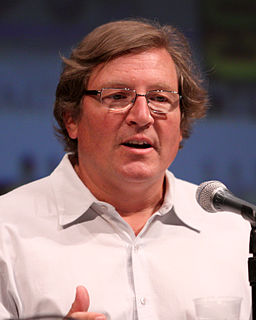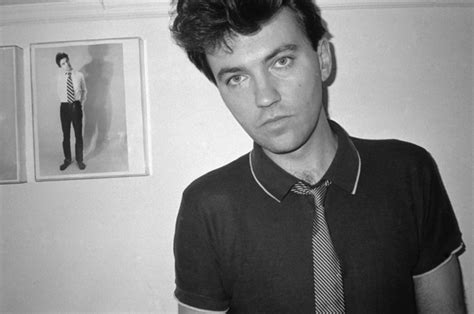A Quote by Simon Sinek
The responsibility of leadership is not to come up with all the ideas but to create an environment in which great ideas can thrive.
Related Quotes
We've never pulled from the toy line. We've always pulled from the mythology. What's great is there's so much mythology, so there's always stuff to pull from that. It never lines up perfectly for a movie; it's just like adapting a book or anything else, you know? But you come up with things to create, you come up with different ideas, but fundamentally the ideas always start from the mythology.
Ideas come mostly bottoms-up. They come when you have a free flow of ideas and you have people able to combine multiple ideas into one concept... And you've got to have competition, too. You've got to say, 'We're going to have 10 different ideas, nine of them are going to fail, and the one that does the best is going to move forward.'
All I'm arguing for really is that we should have a conversation where the best ideas really thrive, where there's no taboo against criticizing bad ideas, and where everyone who shows up, in order to get their ideas entertained, has to meet some obvious burdens of intellectual rigor and self-criticism and honesty-and when people fail to do that, we are free to stop listening to them. What religion has had up until this moment is a different set of rules that apply only to it, which is you have to respect my religious certainty even though I'm telling you I arrived at it irrationally.
You have to have a lot of ideas. First, if you want to make discoveries, it's a good thing to have good ideas. And second, you have to have a sort of sixth sense-the result of judgment and experience-which ideas are worth following up. I seem to have the first thing, a lot of ideas, and I also seem to have good judgment as to which are the bad ideas that I should just ignore, and the good ones, that I'd better follow up.
Even after seeing so much bad art in the last few years, it still seems possible that one can be led to the right places. I haven't given up hope because there are always great artists, great minds, and great ideas. New ideas are what give you hope. You have to base your opinions on the quality of the ideas in the artworks.
Many of the products which create a modern standard of living are only the physical incorporations of ideas- not only the ideas of an Edison or a Ford but the ideas of innumerable anonymous people who figure out the design of supermarkets, the location of gasoline stations, and the million mundane things on which our material well-being depends. Societies which have more people carrying out physical acts and fewer people supplying ideas do not have higher standards of living. Quite the contrary.



































